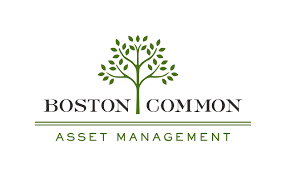Boston Common Asset Management: 5 golden rules for investors on good governance and safer chemicals

Investors care about the chemical footprint of corporations.
Toxic chemicals in products and supply chains are hidden liabilities, posing potentially significant regulatory and reputational risks to brands. Investors increasingly have little patience for companies that ignore the science, policy and consumer concerns with hazardous chemicals.
Witness the 2015 example of Lumber Liquidators, in which revelations of formaldehyde in its products caused its stock price to plummet declining by over 70 percent and its CEO to resign. Investor and consumer preferences are clearly signaling the need for corporations to manufacture, use and purchase products made with safe and healthy materials.
Boston Common Asset Management is a global investor. We expect companies to be proactive, forward thinking and transparent in how they mitigate the risks associated with toxic chemicals in products and supply chains. At Boston Common Asset Management, I engage corporations in the U.S., Europe and Asia on chemical safety. This includes brands and manufacturers in the personal care and household product, toy, oil and gas, apparel and footwear, and solar energy sectors.
In two decades of engaging companies on chemical safety, from responsible pesticide use in the 1990s to Bisphenol A (BPA) in children's products in the 2000s to the Chemical Footprint Project in the 2010s, I have developed what I call the following golden rules for leadership in safer chemicals that inform my expectations and assessments of corporations.
1. Manufacture to the highest quality (and don't dump lower quality goods with hazardous chemicals in emerging markets)
While dumping lower quality, off-spec or contaminated products might achieve short-term profits, it is not a long-term sustainable growth strategy and impedes future market access and growth. This is especially the case in Asia, where increasingly aware consumers are becoming more concerned with toxic chemicals in products.
2. Set product standards to meet the most stringent global regulations, and apply them uniformly across all products across the globe
Some brands chose to apply double standards, for example, selling cosmetics in the U.S. with carcinogens and reproductive toxicants that are banned in Europe. Product disparities between the U.S. and Europe are unsustainable long-term, as growing consumer demand combined with strengthening regulations at the state and local levels are all trending to greater disclosure of chemicals in products and broader chemical restrictions. Leadership companies have Restricted Substances Lists (RSLs) that start from the most stringent global regulations and extend to address trending chemicals of high concern among consumers.
3. Reduce your chemical footprint by substituting chemicals of high concern with safer alternatives
Leadership companies know the chemicals in their products and supply chains, identify hazardous chemicals and replace them with safer alternatives. Walmart and GOJO Industries highlight the leadership trend in chemical safety preferred by investors whereby companies publicly set targets and report on progress. Walmart committed to reduce its chemical footprint in household and consumer goods by 10 percent by 2022 and GOJO Industries committed to reducing its footprint by 50 percent by 2020.
4. Participate in the Chemical Footprint Project
The Chemical Footprint Project Survey provides a comprehensive framework for evaluating and reporting to a third party standard company policies, procedures and practices in chemical safety. The survey results enable companies to set internal goals, identify gaps in performance, benchmark their performance to peers and provide a common language and reporting framework for engaging investors.
5. Enhance your reputation
Investors have many choices, and good chemicals management is a strong proxy for good corporate governance. Chemicals and health are the new carbon. Showcase your corporate chemicals and materials health policy. Companies should demonstrate expertise and awareness of the chemicals in their products and supply chains. They also should show transparency by reporting on their chemical footprints and progress toward reductions.

